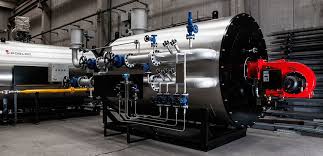
Nov . 08, 2024 03:25 Back to list
Calculating the Capacity Requirements for Hot Water Boilers in Different Applications
Calculating Hot Water Boiler Capacity A Comprehensive Guide
When it comes to heating systems, hot water boilers play a pivotal role in providing comfort in residential, commercial, and industrial environments. Properly sizing a hot water boiler is critical to ensure efficiency, energy savings, and desired comfort levels. In this article, we’ll delve into the essential factors influencing hot water boiler capacity calculation, helping homeowners and professionals alike make informed decisions.
Understanding Boiler Capacity
Boiler capacity refers to the amount of heat energy that a boiler can produce in a given time frame. It is typically measured in British thermal units (BTUs) or kilowatts (kW). The capacity directly affects the boiler's ability to meet heating demands, ensuring that spaces are adequately warmed or that hot water is available for various applications.
Factors Influencing Boiler Capacity Calculation
1. Heat Loss Calculations One of the primary considerations in determining the capacity of a hot water boiler is understanding heat loss within the space. This involves assessing factors such as insulation quality, window sizes, and outdoor weather conditions. A heat loss calculation helps determine the amount of heat needed to maintain a comfortable indoor temperature.
2. Hot Water Demand The peak hot water demand of a building is crucial in capacity calculations. This involves estimating the maximum flow rate of hot water required at any given time. Common activities requiring hot water include bathing, dishwashing, and laundry. Calculating the demand during peak usage times helps in selecting a boiler that can effectively meet these needs.
3. System Efficiency Understanding the efficiency of the boiler is essential when calculating the required capacity. Modern boilers are often rated for their efficiency, typically expressed as Annual Fuel Utilization Efficiency (AFUE). Higher efficiency means more heat is produced with less energy, allowing for a properly sized boiler to operate optimally without excessive energy consumption.
4. Type of Heating System The type of heating system in use also affects boiler capacity. For example, a hydronic heating system that circulates hot water through radiators may have different requirements compared to a more radiant floor heating system. Understanding the design and layout of the hot water distribution system will influence the capacity needed.
hot water boiler capacity calculation

5. Climate Considerations The geographical location and climate impact the desired indoor temperature and the boiler's workload. Regions with colder climates may require boilers with higher capacities to keep homes warm, especially during winter months. Conversely, areas with milder climates might need less capacity.
Boiler Sizing Techniques
To determine the correct boiler capacity, several calculation methods can be employed
1. Manual Calculations This method involves detailed assessments of all pertinent factors, including heat loss calculations and hot water demand. While accurate, this approach can be time-consuming and requires a thorough understanding of heating principles.
2. Software Tools Many professionals use software tools to perform heat loss and load calculations. These tools streamline the process, delivering accurate results based on input data while also factoring in local climate data.
3. Rule of Thumb For smaller residential applications, some may use simplified rules of thumb. For example, a common guideline is to allocate approximately 30 to 40 BTUs per square foot of living space. However, this method is not recommended for complex commercial or industrial applications, where accuracy is imperative.
Conclusion
Accurately calculating hot water boiler capacity is fundamental for maintaining comfort and efficiency in any heating system. By considering factors such as heat loss, hot water demand, system efficiency, and climate, homeowners and professionals can make informed decisions in selecting the right boiler. Whether conducting manual calculations or utilizing software tools, the goal remains the same to achieve an optimal balance of performance, cost, and energy efficiency. Properly sized boilers not only enhance comfort but also contribute to energy conservation and reduced operational costs, making them a worthwhile investment for any building.
-
Efficient Biomass Fired Hot Water Boiler | AI Heating Solution
NewsAug.01,2025
-
High-Efficiency Gas Thermal Oil Boilers | HPT Models
NewsJul.31,2025
-
Oil Fired Hot Water Boilers Sale - High Efficiency & Affordable
NewsJul.31,2025
-
High-Efficiency Commercial Oil Fired Steam Boiler for Industry
NewsJul.30,2025
-
High-Efficiency Biomass Fired Thermal Oil Boiler Solutions
NewsJul.30,2025
-
High Efficiency Gas Fired Thermal Oil Boiler for Industrial Heating
NewsJul.29,2025
Related PRODUCTS






















